
Introduction
Think of this—a smile that is not only bound to light up any room but feels wonderful every single day. A achieving and maintaining healthy teeth and gums is not merely about aesthetics; it is about the health and well-being of one’s mouth. From the satisfying routine of brushing and flossing to the refreshing burst of a mouthwash, each step one takes towards dental care matters. Imagine being able to enjoy your favorite foods, guzzle lots of water, and avoid harmful habits such as smoking. These simple, helpful, and effective tips will keep you far on your way to a fit, confident smile. Are you all ready to transform the way you take care of your teeth and gums? Let’s discuss how you can wake up every morning to celebrate the best version of your healthiest and happiest smile!
Brush Twice a Day

Why You Should Brush Twice a Day
You should brush your teeth at least twice a day to keep both your teeth and gums healthy. This will remove plaque, a sticky film of bacteria that forms on teeth. Plaque, when given a chance to grow, is the chief culprit in causing cavities and diseases in the gums. By brushing in the morning and before sleeping, you keep plaque at bay and safeguard your teeth against tooth decay. It’s a simple habit, yet one that goes a long way in keeping your mouth fresh and your smile bright. Using fluoride toothpaste enhances this process by strengthening tooth enamel to be more resistant to decay.
Choosing the Right Tools
For the best results, use a soft-bristled toothbrush to avoid hurting your gums; hard bristles can cause recession and wear on your enamel. Fluoride toothpaste is also important in your dental care routine. It assists in the re-mineralization of enamel and prevents tooth cavities. You should remember that proper brushing takes two minutes at a time. Reach all surfaces of your teeth and gently brush your gums. This ensures complete oral health and that you keep your teeth and gums healthy.
Tip from the Doctor: Dr. Emily Carter is a dentist with over 15 years of experience, and she insists that the bulk of dental health care has to do with brushing twice daily. “Make sure to use a soft-bristled toothbrush and fluoride toothpaste. Brush for two minutes and get all surfaces of your teeth. Don’t forget to brush your tongue, too, since bacteria can inhabit that area as well.”
Floss Daily
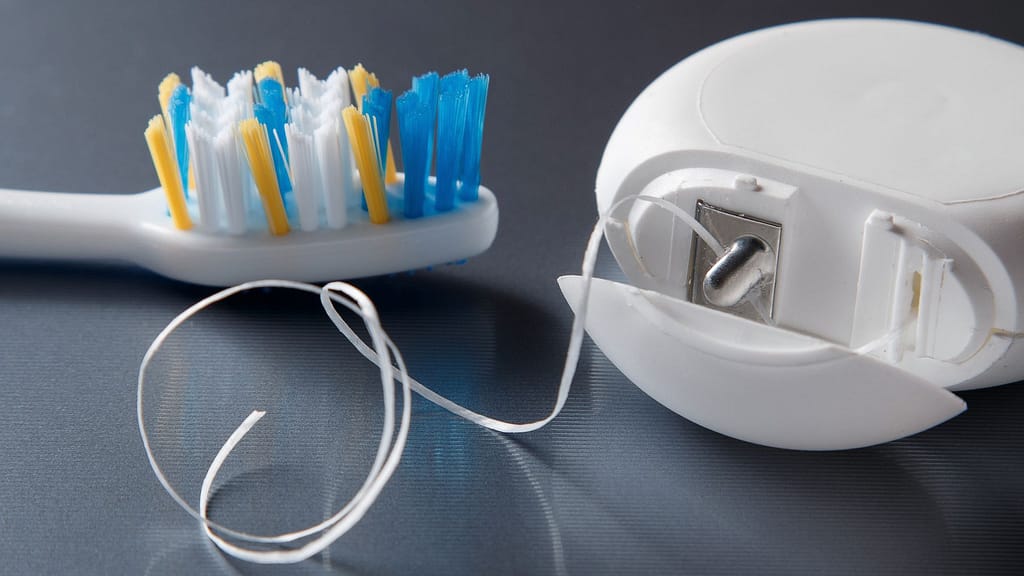
The Important Role of Flossing
It is essential to floss for both healthy teeth and gums. Even though a toothbrush cleans off the plaque from the surface of the teeth, it won’t manage to get into the areas between the teeth or below the line of the gums. Flossing cleans such a part with the help of a thread, thus ridding it of food bits and plaque, which may lead to gum diseases and cavities. In case you floss daily, then you can prevent tartar buildup that may cause other serious dental problems. By adding this practice to your nightly routine, you can reduce the potential for plaque-related issues and promote overall oral health.
How to Floss Effectively
Follow a proper technique to derive maximum benefit from flossing. Take a length of about 18 inches, wrap the ends around your fingers, and leave only a few inches in between. Gently slide the floss between your teeth, curving it around each tooth in a “C” shape. Slide it up and down, reaching below the gumline. Do not snap or force the floss, as this can cause damage to your gums. Regular flossing, along with brushing, enables one to have both healthy teeth and gums, and the process oversees good oral hygiene.
Doctor’s Tip: A dental hygienist, Dr. James Lee, says that one has to floss once daily. “Flossing removes plaque and food particles between your teeth. Use about 18 inches of floss and gently slide it between your teeth in a C shape. Just be consistent; daily flossing is the key to preventing gum disease.”
Use Mouthwash
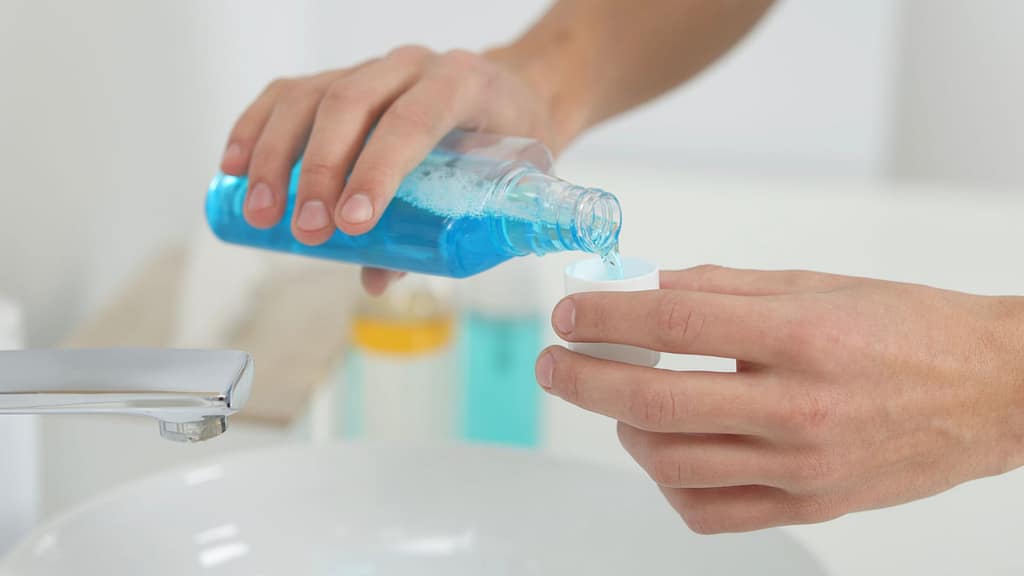
Benefits of Rinsing With Mouthwash
Including mouthwash in your oral hygiene routine significantly enhances your teeth and gum health. Mouthwash reduces plaque, which is a sticky film of bacteria that causes gum disease and cavities. It also combats gingivitis, a beginning form of gum disease, and freshens your breath. Antibacterial mouthwash becomes particularly efficient against this problem since it kills bacteria left over from brushing and flossing. Regular use can help keep the mouth clean and promote general oral health.
Choosing the Right Mouthwash
Choose an antibacterial mouthwash for maximum benefit. Look for products with active ingredients that have been shown to have an antibacterial effect, such as chlorhexidine or cetylpyridinium chloride. Be sure to avoid using high-alcohol-content mouthwashes because they dry out your mouth and can irritate your gums. Use mouthwash at the right time—after brushing and flossing—for maximum benefit. Take a flush according to product directions. This practice supplements brushing and flossing, helping to ensure the healthiness of your teeth and gums.
Doctor’s Tip: According to Dr. Sarah Thompson, a dentist who specializes in preventive care, wash down brushing and flossing with mouthwash. “Use an antibacterial mouthwash containing chlorhexidine or cetylpyridinium chloride. To cut down on bacteria and for fresh breath, rinse for 30 seconds after brushing.”
Regular Dental Checkups
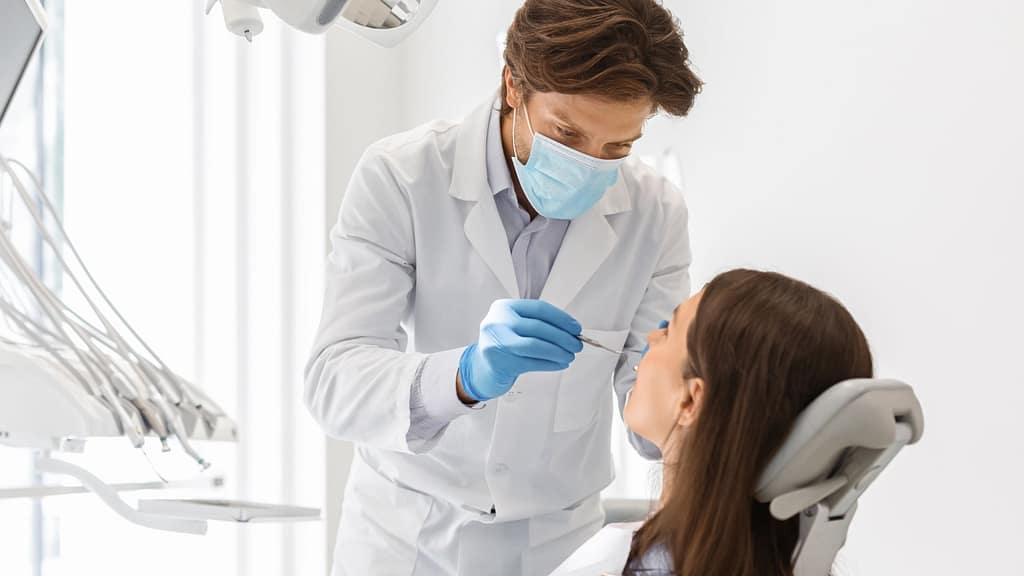
Why Regular Checkups are Important
Healthy teeth and gums require regular dental checkups. Such professional cleaning will help remove the tartar and plaque that develop over some time; such substances cannot be completely removed by cleaning or flossing on your own. Dental exams also allow your dentist to find any possible problems, including cavities, gum diseases, and even oral cancers, at an early stage. It will ensure that you have optimum oral health since it is detected and treated at an early stage before things get out of hand.
Scheduling Your Dental Visits
Let your teeth and gums be in good condition; visit a dentist after six months. Through this regular visit, your dentist will monitor your dental health and provide the necessary treatment or advice. Patients with certain conditions or problems should be advised to visit their dentists more often in case of need. Staying persistent with your dental visits is, therefore, an initiative that leads to healthy teeth and gums for long life and general health.
Doctor’s Tip: Dr. Michael Adams, an oral health specialist, suggests that one should consult a doctor regularly about their dental health. “Make sure to schedule checkups every six months for professional cleanings and exams. Early detection of dental issues can prevent more serious problems and keep your oral health at its best.”
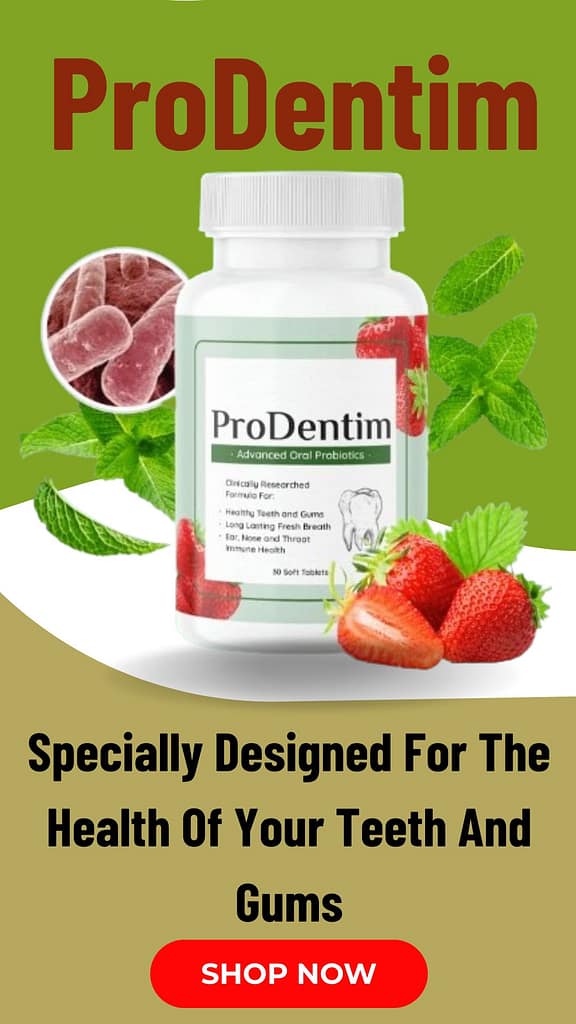
Healthy Diet Choices

Dietary Influences on Dental Health
A diet rich in vitamins and minerals is necessary to keep the teeth and gums healthy. Nutrients such as calcium, vitamin D, and vitamin C contribute towards strong teeth and healthy gums. Your body uses calcium to build healthy, strong enamel, while vitamin D helps it to be absorbed. Vitamin C is required by the gums to prevent gum disease and to help in the healing process.
Nutrition with Good Food
Consume fresh fruit, vegetables, and dairy products since it helps oral health. Apples and oranges, for example, contain a lot of fiber and vitamins that will serve uptown both essential nutrients and antioxidants helping one to rejuvenate health. Vegetables such as green leafy vegetables enrich the body with vital nutrients. On the other hand, dairy products like milk, cheese, and yogurt contain calcium and vitamin D. Such food intake will help ensure that your diet supplies the right nutrients for the health of your teeth and gums. It also contributes to maintaining good overall health.
Medical Mantra: Dr. Laura Martinez, a nutritionist, believes that diet plays an important role in oral health. “Eat a variety of fruits, vegetables, and dairy products. These foods provide essential nutrients like calcium and vitamin C that support strong teeth and healthy gums.”
Limit Foods and Drinks with Added Sugars

Count the Sugar Risks
Sugary foods and drinks easily cause tooth decay as well as gum diseases. Ingestion of sugar results in the production of acids by bacteria inside the mouth, which attack the enamel, hence causing cavities. In addition, the intake of sugary foods has the potential to increase the inflammation of the gums as well as the risk of getting gum diseases. Limiting sugar intake best protects teeth and gums as it reduces the risks of such kind of dental problems.
Opting for Better Beverages
Choosing water or unsweetened drinks will hydrate the mouth. Water rinses away some of the food particles and bacteria that remain in the mouth. Unsweetened drinks, such as herbal tea, also help to rehydrate sugar-free and do not contribute to tooth decay. Avoid sugary soda, juice, and sports drinks, which speed up the progression of tooth decay and gum disease at a super high rate. These healthier choices are supporting your efforts to keep teeth and gums healthy.
Doctor’s Tip: Dr. Karen Wilson, a dentist, recommends reducing sugar intake. “Food and drinks containing added sugars are more likely to cause tooth decay. Drink water or unsweetened tea and coffee to help your teeth by not allowing the bacteria to produce acids that damage teeth.”
Avoid Tobacco Products
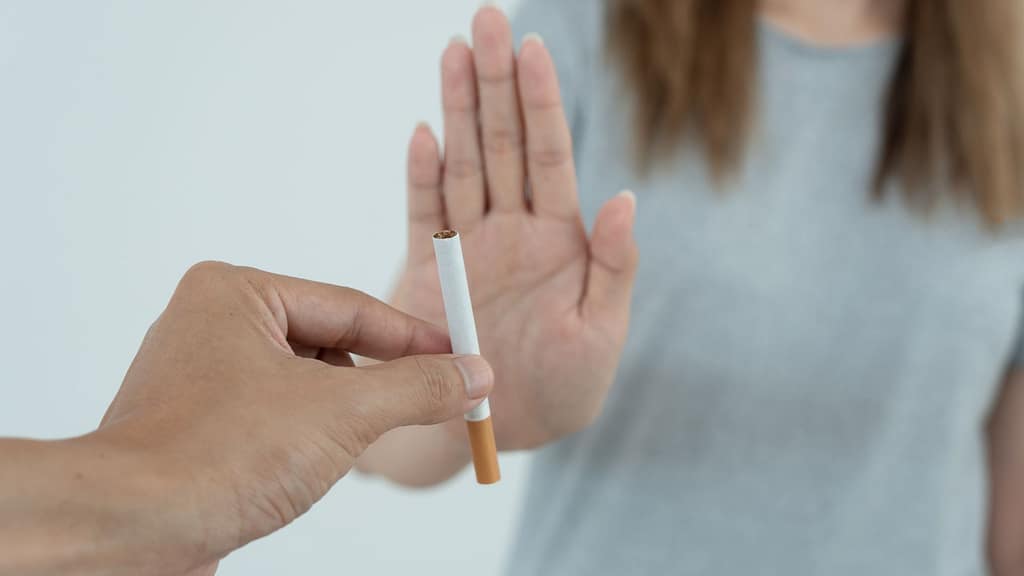
The Effects of Tobacco on Teeth and Gums
Avoiding tobacco products is essential for healthy teeth and gums. Smoking and chewing tobacco can really harm your oral health. They contribute to gum disease by causing irritation and inflammation of the gums. Also, tobacco use leads to a higher risk of oral cancer, which can have disastrous consequences for your overall health. The harmful chemicals in tobacco products also further lead to tooth discoloration and bad breath. The best approach to having a healthier mouth and lowering the risk of serious dental issues is quitting tobacco.
Tips to Quit Tobacco
If you smoke or use tobacco, get help quitting. Numerous resources provide counseling, nicotine replacement therapies, and support groups. Your health care provider can give specific advice and may recommend treatments. Quitting greatly improves oral health, reducing the risk of gum disease and improving both general well-being and quality of life. Making this change will help achieve and maintain healthy teeth and gums for years into the future.
Doctor’s Tip: Dr. John Roberts is a dentist and oral health specialist. He advises his patients to stay away from tobacco. “Tobacco products are highly dangerous for your gums, putting you at significant risk of developing cancer in the mouth. Seek assistance to quit smoking or using chewing tobacco that will be useful for your dental and overall health.”
Hydrate

Hydration in Relation to Oral Health
Hydration is important for healthy teeth and gums. Drinking water rinses out food particles and plaque-causing bacteria, the leading cause of bad breath. Proper hydration also promotes saliva production, vital in neutralizing acids and protecting enamel. Adequate saliva flow helps avoid dry mouth, which can raise the risk of cavities and gum disease.
How to Stay Hydrated
Try drinking water all throughout the day to keep your mouth cleaned out and to help keep your oral health in good shape. It is considered to be effective when used with every meal; in addition to this, one should sip it between meals frequently. Hence, one should try to limit caffeinated or alcoholic beverages that may dry your mouth and reduce saliva flow. Be that as it may, staying hydrated ensures your mouth gets washed frequently while keeping your teeth and gums healthy in the process, thus improving your dental health.
Doctor’s Tip: Drink plenty of water throughout the day, says Dr. Nancy Green, a dentist. “The water flushes residue from food, promotes saliva flow, and prevents dry mouth—all for healthy teeth and gums.”
Protect Your Teeth
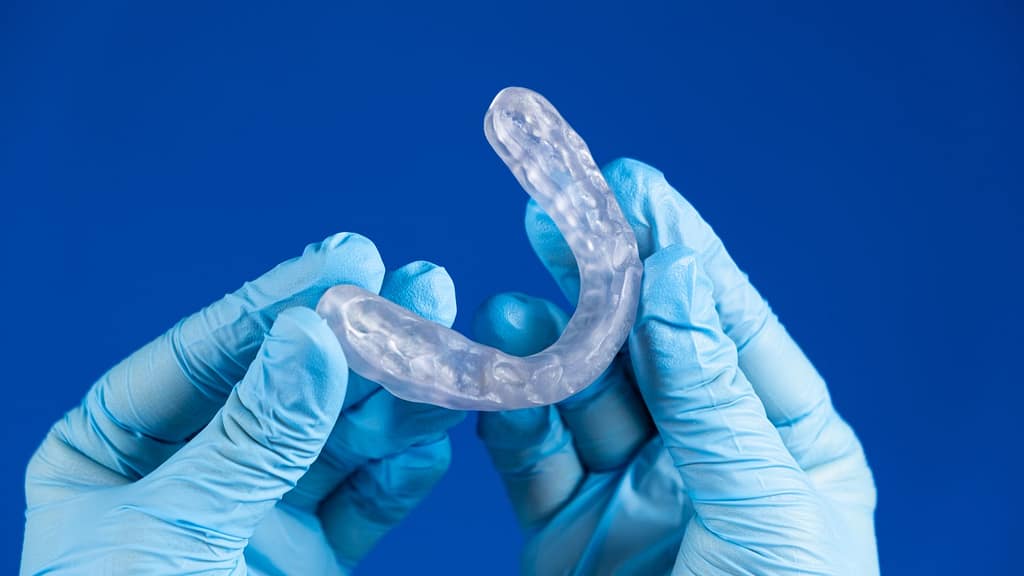
Why it is important to protect your teeth?
Proper care of your teeth means protection from damage. The activities of contact sports and grinding/bruxism often lead to serious problems related to teeth. These include chipped teeth, cracked teeth, and even lost teeth. A mouthguard forms a protective barrier to absorb and distribute impact forces, which enables the avoidance of such traumatic injuries. If you are going to be involved in activities where dental trauma might occur, then you should wear some kind of protection in the form of mouthguard protection.
Choosing the Right Mouthguard
If you want the best possible protection, opt for one that will be custom-made. A custom-fitted mouthguard is designed to your mouth dimensions, and because of this, they can provide more comfort and greater protection than anything you would find on the rack or as boil-and-bite varieties. Consult your dentist to get a perfectly fitted mouthguard to suit your special needs. You’re not only preserving your dental health but also fighting possible long-term damage if you wear a mouthguard during contact sports or at night in case you grind your teeth.
Doctor’s Tip:: A sports dentist, Lisa Nguyen recommends the use of mouthguards. “If you are involved in contact sports or grind your teeth, invest in a custom-fit mouthguard. It provides essential protection against damage and helps maintain your dental health.”
Good Oral Hygiene Habits to be Maintained
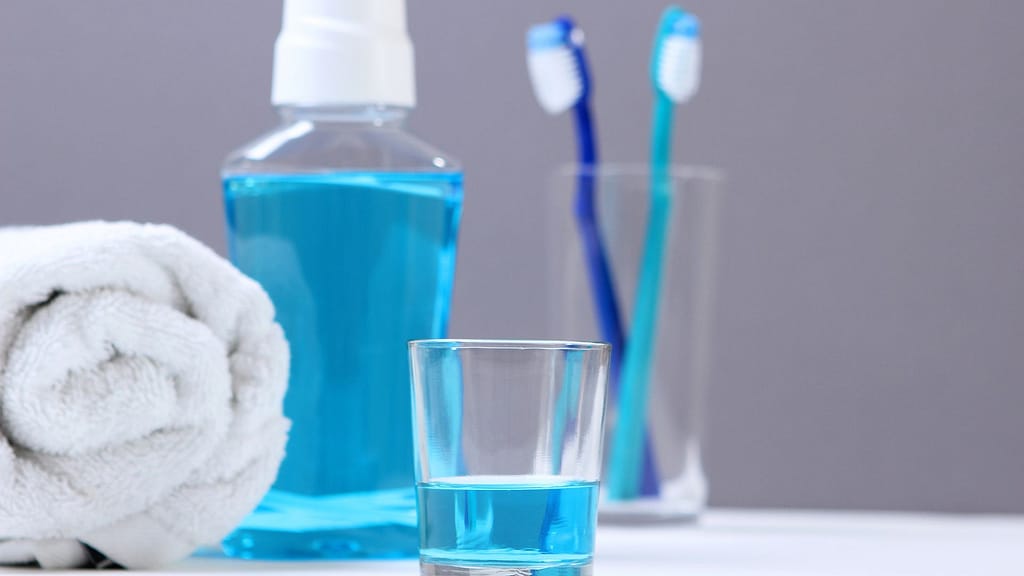
How Frequently Doing Your Oral Care Routine is Crucial
Good oral hygiene ensures you have healthy teeth and gums. Making a regimen out of brushing, flossing, and using mouthwash prevents the growth of plaque, cavities, and several gum diseases. Daily care will keep your mouth clean and give most dental problems a slowdown in their development over time. Sticking to a regular oral hygiene routine thus is not only beneficial to dental health but overall health as well.
Creating an Efficient Oral Hygiene Routine
An effective daily routine would include brushing your teeth with fluoride toothpaste at least twice a day, flossing once a day, and swishing with antibacterial mouthwash. Be sure to brush your teeth at least two minutes each time to make sure you get all the surfaces. A reason to floss is that it removes plaque and food particles from between the teeth and under the gum line. This completes the routine of disinfecting your mouth, reducing bacteria, and freshening breath. Long-term health in teeth and gums is assured if such practices are diligently followed.
Doctor’s Tip: Dr. Robert Smith, a Dentist, does insist on the regularity of oral care: “Get into the habit of brushing, flossing, and mouthwashing as part of your routine. It is persistent care that will keep dental problems at bay and guarantee a lifelong healthy set of teeth and gums.”
Follow such expert advice and you shall do well on your journey to healthy teeth and gums and that beaming, confident smile.
Conclusion
Healthy teeth and gums are equally essential for your overall health and a nice, confidence-enhancing smile. By following these expert tips, you set a base for excellent oral health: brush your teeth at least twice a day, floss, rinse with antibacterial mouthwash, see your dentist regularly, eat a healthy diet, limit the intake of sugary foods, stay away from tobacco, keep yourself hydrated, protect your teeth, and maintain good oral hygiene. Keeping up with such measures will ensure hitting a healthy mark for your teeth and gums. Try these tips to maintain good dental health, prevent common problems, and ensure yourself a lifetime of healthy teeth and gums.

